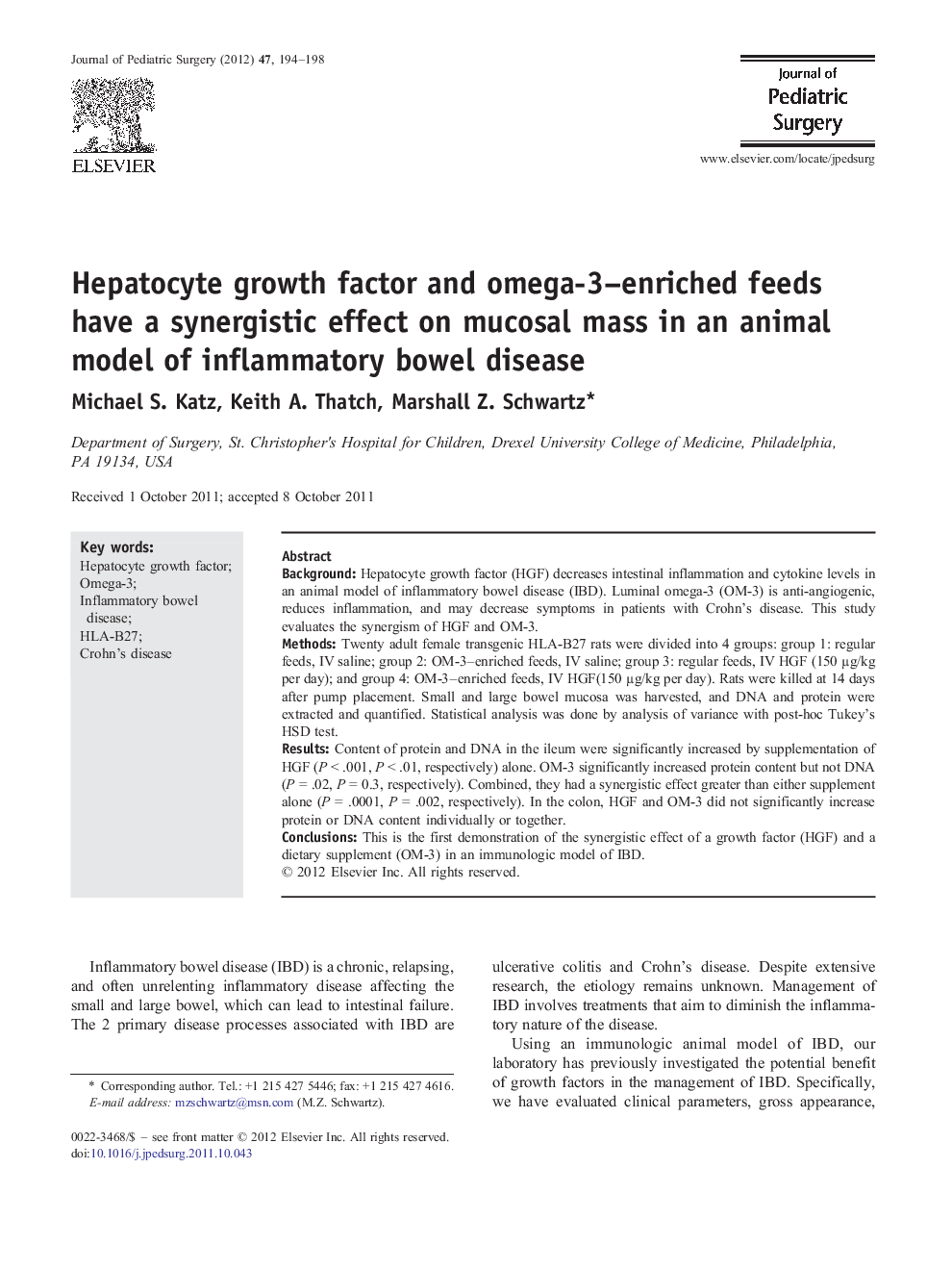| Article ID | Journal | Published Year | Pages | File Type |
|---|---|---|---|---|
| 4156767 | Journal of Pediatric Surgery | 2012 | 5 Pages |
BackgroundHepatocyte growth factor (HGF) decreases intestinal inflammation and cytokine levels in an animal model of inflammatory bowel disease (IBD). Luminal omega-3 (OM-3) is anti-angiogenic, reduces inflammation, and may decrease symptoms in patients with Crohn's disease. This study evaluates the synergism of HGF and OM-3.MethodsTwenty adult female transgenic HLA-B27 rats were divided into 4 groups: group 1: regular feeds, IV saline; group 2: OM-3–enriched feeds, IV saline; group 3: regular feeds, IV HGF (150 µg/kg per day); and group 4: OM-3–enriched feeds, IV HGF(150 µg/kg per day). Rats were killed at 14 days after pump placement. Small and large bowel mucosa was harvested, and DNA and protein were extracted and quantified. Statistical analysis was done by analysis of variance with post-hoc Tukey's HSD test.ResultsContent of protein and DNA in the ileum were significantly increased by supplementation of HGF (P < .001, P < .01, respectively) alone. OM-3 significantly increased protein content but not DNA (P = .02, P = 0.3, respectively). Combined, they had a synergistic effect greater than either supplement alone (P = .0001, P = .002, respectively). In the colon, HGF and OM-3 did not significantly increase protein or DNA content individually or together.ConclusionsThis is the first demonstration of the synergistic effect of a growth factor (HGF) and a dietary supplement (OM-3) in an immunologic model of IBD.
